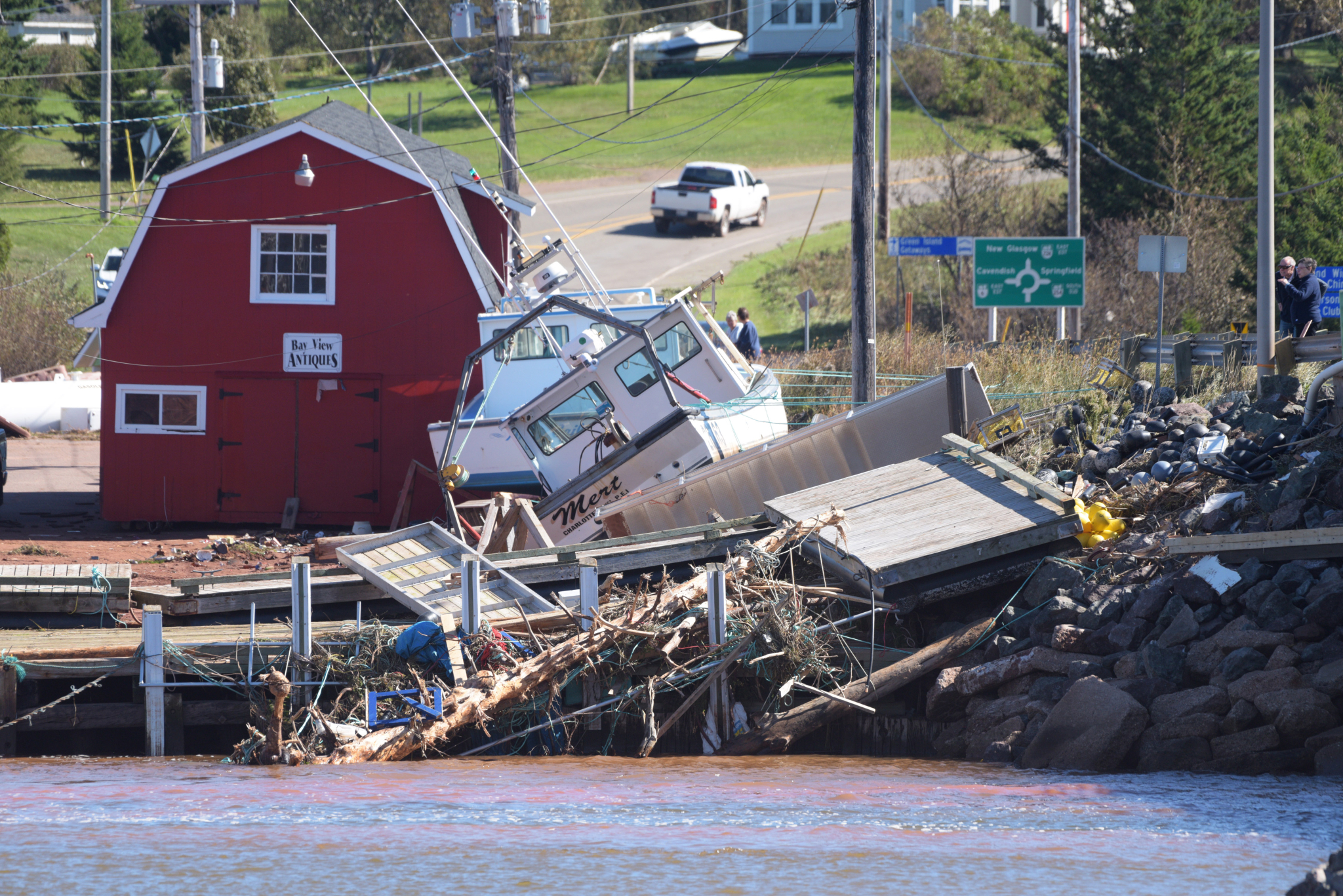As we attempt to come to grips with destruction on the coastline of P.E.I., floods in Florida turning roads into rivers, and floodwaters that upended the lives of tens of millions in Pakistan, it dawns on us that restoration is going to be extremely expensive.
Heidi Petracek, CTV News Atlantic Reporter, reports on the destruction in Neil’s Harbour in Nova Scotia’s Victoria County, the massive downed trees in Sydney, N.S., and the receding dunes on Prince Edward Island. Climate experts say the aftereffects of post-tropical storm Fiona make up a new reality on the east coast. Brian Feltmate, head of the Intact Centre on Climate Adaptation at the University of Waterloo says “The severity of the storms is going to get more challenging over time.”
“With more heat in the system, there's more energy to the storms, and warmer air holds more moisture, so you get a combination of higher winds, and more water coming down in shorter periods of time, and that's all driven by climate change,” says Feltmate. ('The Reality Is Kicking in': Experts Say Storms Like Fiona Are the New Normal for Maritimers, 2022)
Avi Lewis considers a couple of weeks on planet Earth when hurricanes plunged 11 million people into darkness in Cuba, permanently redrew the coastline of P.E.I., and turned Florida roads into rivers. All while the floodwaters that upended the lives of tens of millions in Pakistan, and drowned their future crops, have yet to recede.
Right now in Canada, the costs of climate-turbocharged disasters fall disproportionately at the local level. Ottawa and the provinces kick in with one-time emergency injections that get the big headlines, while on the ground, it’s a long, grinding story of individuals struggling with insurance companies to get their homes and businesses rebuilt. Moreover, 60 per cent of core public infrastructure is owned and maintained by municipalities in Canada — so our system places a disproportionate burden on the very level of government that has seen its fiscal capacity shredded by decades of austerity even as a pile of social costs has been dumped on its doorstep. And that was before the disarray, burnout, staff shortages and chaos of the pandemic. (Lewis & Fawcett, 2022)
The people of Pakistan are facing great costs for restoration that is a consequence of the GHG emissions for electrical generation, transportation, and industrial processes in the wealthy countries of the Global North. The carbon footprint of the populated industrial provinces of Canada makes weather disasters more likely to affect the small agricultural and marine economy of PEI. When responsible entities and governments address these “externalities” that severely impact “someone else” we will bring justice and justification to the emergency need to mitigate the damage of climate change.
References
Lewis, A., & Fawcett, M. (2022, October 4). Big Oil: We're coming to collect. Canada's National Observer. Retrieved October 4, 2022, from https://www.nationalobserver.com/2022/10/04/opinion/big-oil-we-are-coming-collect
'The reality is kicking in': Experts say storms like Fiona are the new normal for Maritimers. (2022, October 3). CTV News Atlantic. Retrieved October 4, 2022, from https://atlantic.ctvnews.ca/the-reality-is-kicking-in-experts-say-storms-like-fiona-are-the-new-normal-for-maritimers-1.6094263


No comments:
Post a Comment